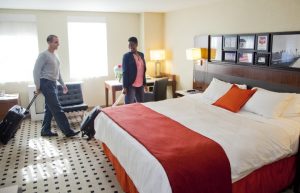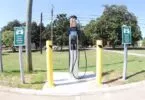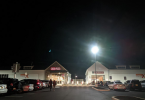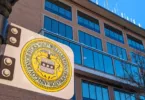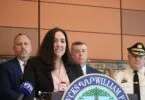Pennsylvania lawmakers this month suggested a 5 percent hike in the state’s hotel tax as a way to break the budget stalemate, but the proposal was ultimately deemed an unwelcome guest at the statehouse in Harrisburg.
House Republicans proposed the idea, which would have caused Pittsburgh and Philadelphia to be subject to some of the highest hotel taxes in the nation, but the proposal never came up for a vote due to insufficient support, according to officials in the hospitality industry.
“It came out of nowhere,” Melissa Bova, vice president of government affairs with the Pennsylvania Restaurant and Lodging Association, told Watchdog.org. “They didn’t give us a heads-up ahead of time.”
Most hotels generally pay a 6 percent hotel occupancy tax as well as a local hotel tax, according Bova.
“The legislature was looking to tax an industry that already pays their fair share of taxes,” she said.
Under the tax hike plan, hotels in Allegheny County would have paid a 19 percent hotel tax, Craig Davis, the president and CEO of VisitPittsburgh, said.
“I believe that a tax on this would have had a ripple effect to hurt our entire community,” Davis told Watchdog.org. Effects would have been felt by the county’s tourism industry and the 40,000 jobs it supports, he said.
Such a tax hike would have made it difficult for hotels in the state to compete for convention business, according to Davis, who said convention planners routinely do comparative analyses that include the amount of hotel taxes.
“We believe it would have made us uncompetitive in all forms of hotel booking channels,” he said.
Like the lodging association, VisitPittsburgh was also taken by surprise when the hotel tax plan was made public, Davis said.
“We were completely blind-sided by it,” he said. “My organization contacted like organizations across the state, and then we urged our partners and our members … to contact our state representatives.”
Bova pointed out that the tax plan surfaced even though Pennsylvania funds a tourism promotion budget that is among the leanest in the country. And residents, not just out-of-state visitors, would have paid the price because many overnight guests at hotels in one region of the state are Pennsylvania residents from other areas of the state, she said.
The hotel tax would have had devastating effects in every legislative district in the state, according to the lodging association.
Industry officials remain uncertain if the hotel tax could come back in another form or a lesser amount. The 5 percent tax would have raised an additional $165 million in 2018, according to a statement by House Majority Leader David Reed, R-Indiana County.
“It looks like that isn’t going anywhere right now,” Elizabeth Stelle, director of policy analysis for the Commonwealth Foundation, said of the hotel tax hike plan. “It’s very difficult at this point to predict what the final revenue package will look like.”
The foundation has noted that a number of tax plans – a severance tax on shale oil development, a home heating tax, a cell phone tax and a warehouse tax – have been floated, but ultimately they lacked traction to move through the legislature. The Pennsylvania Senate recently shot down a House plan that contained no revenue increases.
Other budget solutions that don’t require tax hikes are available, Stelle said. These include privatizing the system of state-run liquor stores in order to collect new revenue from licenses, reducing state-funded horse race purses and drawing money from so-called shadow budget accounts.
The latter include special funds set up for specific purposes, such as the Keystone Park, Recreation and Conservation Fund, many of which have accumulated surpluses over the years, Stelle said.
“Many have reserves that have not been used for two or three years,” she told Watchdog.org.
Gov. Tom Wolf meanwhile has floated borrowing proposals as a way to secure the needed funds to balance the budget. These include a plan to lease the Pennsylvania Farm Show Complex and getting a loan from the Pennsylvania Liquor Control Board that would be repaid over the coming decades.
Stelle expressed concern about the liquor store loan idea because the board does not have a good record of financial stability and because the loan would complicate possible future efforts to privatize the system.
Instead, the legislature and the governor should move to get a handle on cost drivers that are boosting public spending, she said. One of the biggest of these is welfare reform, according to Stelle, who said that a bill Wolf said he plans to veto would allow the Department of Human Services to impose work requirements in return for Medicaid benefits. In turn, more adults would move toward financial independence, she said.



